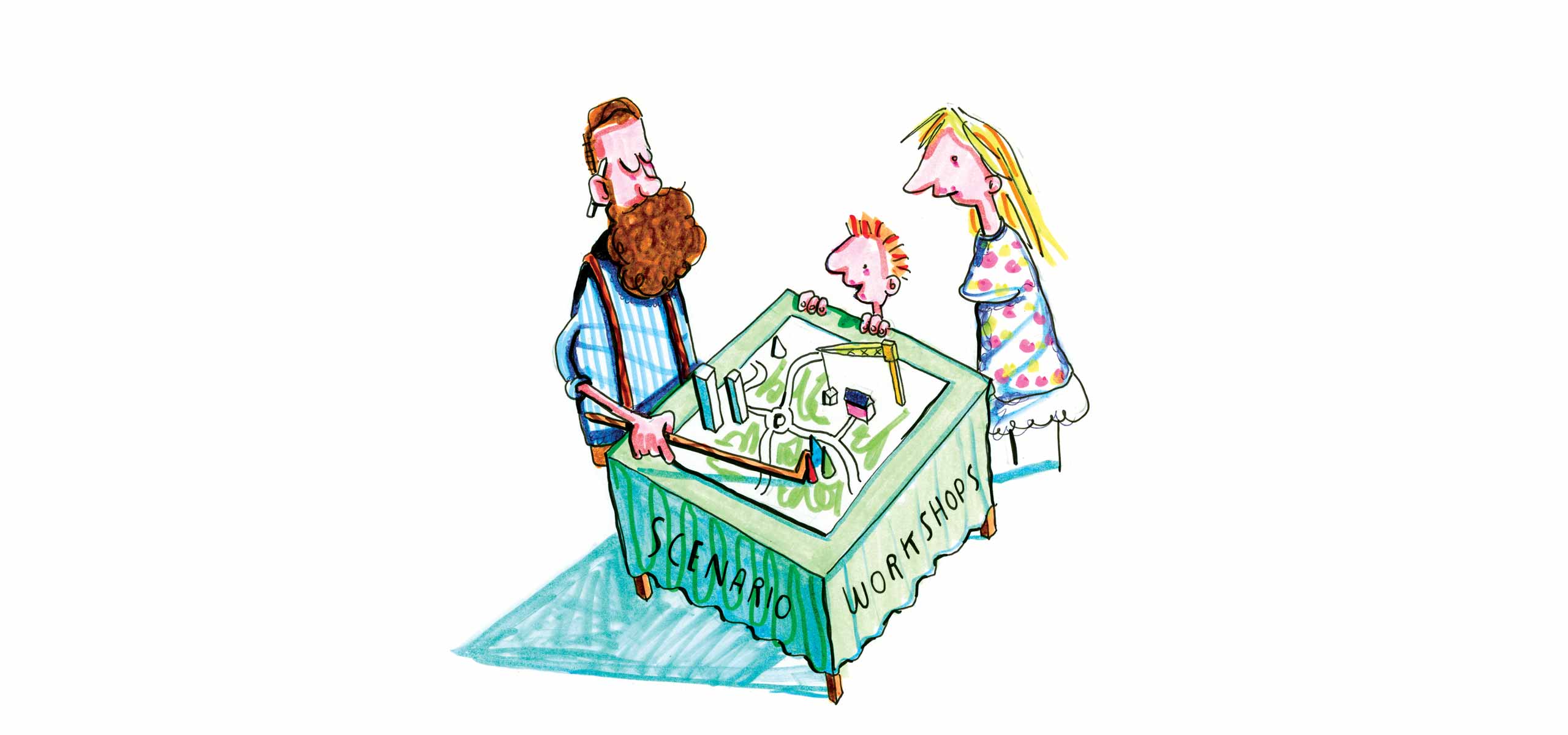tools directory
Scenario Workshops

What situations is this tool used in?
Scenario workshops engage members of a community, decision makers, and other stakeholders or experts in a dialogue aimed at solving local problems and anticipating future ones. They are suitable for examining broad issues, and also act as a tool for enabling constructive discussions and potentially further dialogue between different groups.
Who is this tool aimed at?
The scenario workshop process tends to be used by organisations interested in exploring multifaceted community-based issues rather than single, discrete topics. This could include, for example, business planning led by a private sector organisation, or sustainable communities led by a local council. A typical process involves a minimum of 16, and anything up to 30 participants from different groups such as local government, technical experts, business people, and knowledgeable local residents.
How Is the Tool Used?
The Scandinavian tradition of community involvement – consisting of scientists presenting scenarios to groups of citizens in a 2-3 day workshop – was the basis for early models of scenario workshop. The process, which now tends to be shortened to a one-day workshop, has since been taken up by organisations such as the European Union, which initiated the European Awareness Scenario Workshop (EASW) initiative.
Following participant selection, the workshop is arranged, during which four future visions are presented by experts or facilitators. A phase of working in smaller groups leads to the development of a common vision, followed by the generation and narrowing down of actions or ideas to respond to specific themes arising from the vision.
Who has used the tool?
In Denmark, scenario workshops have been used to enable groups of citizens to interact with other stakeholders to exchange knowledge and experience and develop a common vision. One such workshop developed scenarios relating sustainable development and urban ecology to the daily life of typical Danish citizens. A series of scenarios were presented to the group of citizens who used them as inspiration for identifying barriers, visions and action plans. The citizens also added their own local knowledge to help broaden the perspective of the scenarios.
Case study: p116, ‘Environmental Futures: The Practice of Environmental Scenario Analysis’, Edited by J. Alcamo. 2008. Elsevier. ISBN: 978-0-444-53293-0
Where to find out more
Overviews of scenario workshop
EASW initiative home page